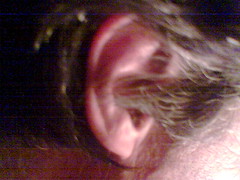The Most Prevalent Issues With The Ears
There are numerous issues with the ears. Some might cause hearing loss, while others can induce infection and balance issues.
As a result, it’s always a good idea to have your ears and hearing checked by a specialist as frequently as possible.
They can discover problems, investigate them, and ideally provide you with a clear solution.
So, to provide more information, let’s look at the four most typical problems.
Tinnitus
Tinnitus is distinguished by a buzzing or hissing sound in one or both ears. These buzzing sounds might be heard intermittently or continuously.
However, it is most noticeable when there is silence. Tinnitus can be loud when there are no other sounds to focus on.
Tinnitus is classified into two types: subjective tinnitus and objective tinnitus. The sufferer only perceives tinnitus as subjective tinnitus.
The physician may occasionally detect objective tinnitus. There is currently no treatment for tinnitus. Some remedies, however, can help to ease the symptoms.
It is estimated that around 80% of those with tinnitus are also deaf, even if they are unaware of it! That is why many persons with tinnitus get a hearing test.
However, you can hear clearly and still have tinnitus. Although tinnitus is frequently associated with hearing loss, it is not a disease.
Tinnitus is a symptom of various conditions and can sometimes occur for no apparent reason.
Tinnitus can significantly impact and cause tension, worry, irritability, and even insomnia.
Going to an ENT specialist to find a method of treatment that helps you. is the first step toward feeling better.
Hyperacusis and presbycusis (age-related hearing loss)
Presbycusis is a progressive age-related hearing loss disorder. It commonly appears after the age of 50 and is related to tinnitus.
Hyperacusis is a particularly debilitating illness characterised by an enhanced perception of sound loudness.
Hyperacusis is frequently coupled with headaches or pain caused by a relatively low sound tolerance threshold.
Hearing fatigue is becoming more common and severe. Individuals who are affected are also sensitive to strident and impulsive sounds.
This risk profile is predisposed to sonic damage and hyperacusis development.
The cochlea shows sequelae after one or more hearing injuries.
The inner ear structures have been effectively damaged.
Pathological auditory hyperacusis is a condition that varies in severity depending on the number of lesions and the fragility of the patient’s cochlea.
It sounds that were formerly tolerable have suddenly become a cause of aggravation. This may necessitate the use of a hearing aid.
Meniere’s syndrome
Meniere’s disease is an inner ear disorder characterised by dizziness, tinnitus, and hearing loss. The disease’s origins are unknown.
It usually happens unexpectedly and lasts between two and 24 hours. Medication is used to treat Meniere’s illness.
If difficulties arise, surgery may be contemplated.
Meniere’s disease can be caused by various reasons, including trauma, infection, ischemia, autoimmune, and genetics.
These factors point to a multifaceted cause and persistent confusion about the disease’s origin.
While Meniere’s disease is uncommon, there is still much information available.
Chronic ear infections
Otitis media is a relatively common infectious condition affecting newborns and young children.
It causes two to three million doctor visits annually and necessitates early and adequate treatment to avert further complications.
Various forms of ear infections affect various areas of the ear.
Indicators of a middle ear infection and how can you treat it?
An acute middle ear infection is an infection of the small bone cavity known as the middle ear.
It is usually caused by a bacterium, although viruses are another potential trigger, especially after nasopharyngitis.
Because of the way their immune systems function, children are typically especially vulnerable to it.
They will quickly grow out of this stage. People of all ages, however, can be affected.
Brought To You By Ear Wax Removal Hastings
The post The Most Prevalent Issues With The Ears appeared first on https://gqcentral.co.uk



